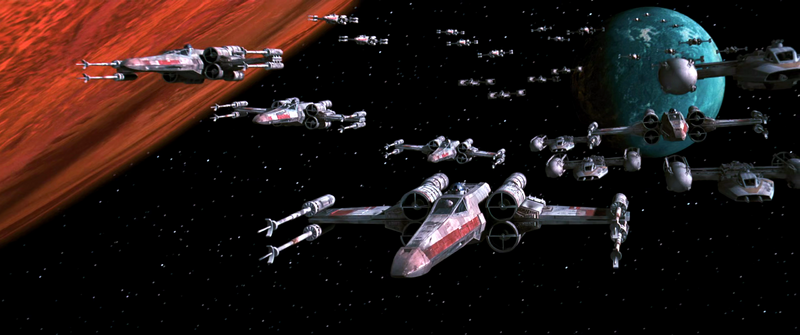
Whatever one thinks of the Star Wars novels that have come out since Fate of the Jedi ended, one has to admit that their primary distinguishing feature is experimentation—in a little over a year we’ve gotten a western, an Ocean’s Eleven riff, a female-led Dawn of the Jedi story, and the first X-Wing book in thirteen years, among others. Now that no one—not even, it seems, LucasBooks’ Jennifer Heddle—is quite sure what’s going to become of the Expanded Universe in a couple years. It seems there’s never been a better time for the EU to just go for broke and see what works. To that end, the staff of Eleven-ThirtyEight humbly submits the following for your consideration.
Mike: X-Wing: Red Squadron
Seriously, now—how has this not happened already? In addition to being the perfect mix of fan-bait and movie tie-in, a book telling the origins of Red Squadron would be the perfect opportunity to sort out the myriad gaps and inconsistencies of this era and deliver a coherent history of the pilots who destroyed the Death Star.
If they were really into the idea, the concept could even spawn two different books—one pre-Yavin, detailing the initial formation of Red Squadron from pieces of several other units of the early Rebellion (and incorporating the proto-Red Squadron from the X-Wing game that gave us Keyan Farlander, one of the few Yavin survivors), and one post-Yavin that tells of the “Rogue Flight” era, when Luke and Wedge, alongside Commander Narra (an important character who dates all the way back to the Empire radio drama yet has had few moments in the spotlight) rebuilt Red Squadron almost from the ground up and eventually evolved it into the Rogue Squadron seen on Hoth.
In addition to being a story worth telling and a big opportunity for cleaning up stale continuity, modern novels digging deep into the period surrounding ANH would be a great way to add diversity to what is probably the least diverse point of the entire Star Wars timeline; especially in a post-Yavin story where all the boring ol’ white dudes from the film are dead.
On that note, there actually is a chance of something like this happening in the near future—Razor’s Edge made a respectable effort to diversify the Rebel group shown in its story, and if the first three Empire and Rebellion books are successful it’s entirely possibly that Wedge could be number four, and even if it weren’t officially an “X-Wing” book, it could serve much the same role.
Ben: General Solo
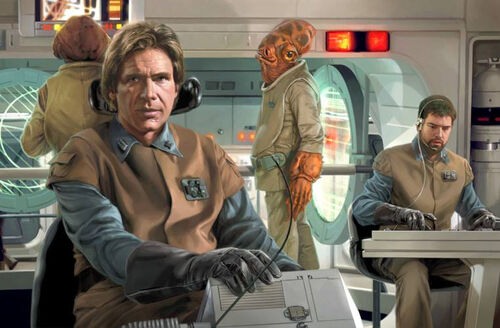 Fresh from duffing up a fat bastard by the name Warlord Zsinj, General Solo continues to be the scourge of Imperials.
Fresh from duffing up a fat bastard by the name Warlord Zsinj, General Solo continues to be the scourge of Imperials.
There’s plenty of time and space for this – just conjure up a load of disposable Imperial villains, give them some good hardware and then let Solo, the Rogues and Wraiths kick a substantive amount of arse.
Winner Takes All
On one side, the slave turned rebel of Grand Moff Tarkin – Admiral Ackbar; on the other an Imperial officer who fled at Endor only to take command of the Empire, Admiral Pellaeon. Now they will fight the final battles of the Galactic Civil War.
This could work with or without Thrawn being in the mix, it’s really an Ackbar book that gives us the view from Fleet Command. It’d require an author skilled at depicting fleet battles and able to make them exciting and brutal in equal measure, a rare ability at best.
Could also weave in as, Easter eggs / extra good stuff, Admirals Rogriss and A’Baht.
Alexander: Corellia Antilles and the Unknown Regions
The concept speaks for itself. Perhaps above all others, the one genre that Star Wars most needs to explore. Ancient alien artifacts, lost ruins filled with dangerous traps to be navigated and puzzles to be solved, pirates and smugglers to be evaded, rival archaeologists to compete against, black marketeers to be dealt with or fought off, new worlds to explore, strange and mysterious alien races from beyond the Outer Rim to come into contact with: there’s no limit to its potential. Not to mention having a story (or series) headlined by a female character who isn’t Leia or Mara Jade.
Lisa: Sword of the Jedi
Ten years ago I never imagined Star Wars EU would be more than Sci Fi/Space Opera. Four years ago we experienced Star Wars as a horror story and genre types opened up for the universe. The following year saw a sequel to the horror story released leading me to believe that Star Wars EU can exist beyond the Space Opera. Two months ago we received the gift of Star Wars as a Western. Next up? Star Wars the Romance novel. Picture a tastefully done story with the romantic adventure of your favorite couple.
 Her Universe, a store created for female geeks, has experienced great success selling girl clothing and accessories to fans. While there are males who read Romance books, the primary audience and purchasers are females. The success of a store like Her Universe tells us that the female fans are ready and willing to spend money. I’m not looking for a raunchy, more sex than plot type of Romance (though I do believe there is a market for that too), but more towards the style of certain Paranormal Romance books. Paranormal Romance as a genre didn’t take off until around 2002 when an influx of books hit the market and were selling. The popularity of such a genre continues to grow each year and I believe Star Wars EU is missing our on a share of the market by not producing these books.
Her Universe, a store created for female geeks, has experienced great success selling girl clothing and accessories to fans. While there are males who read Romance books, the primary audience and purchasers are females. The success of a store like Her Universe tells us that the female fans are ready and willing to spend money. I’m not looking for a raunchy, more sex than plot type of Romance (though I do believe there is a market for that too), but more towards the style of certain Paranormal Romance books. Paranormal Romance as a genre didn’t take off until around 2002 when an influx of books hit the market and were selling. The popularity of such a genre continues to grow each year and I believe Star Wars EU is missing our on a share of the market by not producing these books.
I believe a Luke/Mara book would be the most successful, but I also understand the hesitation to “sully” Luke’s good boy image with such a book. Therefore I will propose a book using wholly EU characters. The Sequel Trilogy could also pose a problem since the EU future is up in the air, but a Jaina/Jag romance book about a secluded meetup between the two filled with a few steamy scenes and some Jedi action with a mystery or problem to solve as well would be a perfect fit for Star Wars the Romance novel. In a world where Fifty Shades of Grey is a best seller, please show the world what a good Romance novel is.
Jay: The Inglenook
The title is a riff on the TV drama The West Wing — since we’re lacking for proper names for different sections of the Imperial Palace, the Mon Cal Inglenook will do even though it is unlikely that the Empire would have transacted its business from that section of the Palace.
The premise is simple: a fast-paced, witty, and cerebral political thriller set among the Emperor’s scheming advisors. Since we’re talking villains here, it’s a different sort of story than most EU. To keep it interesting though, the story would emphasize the rather clownish aspects of their characters: they’re supposed to be immensely important and influential in the governing of the Empire, but we know from the ROTJ novel that Vader doesn’t think much of them at all. Thus, we would expect plotlines about inane subjects such as getting denied access to the Manarai Restaurant for So-and-So’s daughter’s 16th birthday party and therefore being unable to flatter So-and-So or perhaps figuring out how best to cheat in the Spira Regatta so that Sim Aloo’s nephew would win and his sister would stop nagging him. Unlike the West Wing, I don’t think the Emperor should be a main character at all. In fact, I don’t think people like Pestage, Dangor, or Greejatus should be the protagonists either: the characters should instead be the staffers who work for the Imperial Ruling Council and are therefore the long-suffering subjects of their ridiculous demands. Ideally these Imperial Advisors should ask their staffers to focus on anything but actual governing, which they have very little time for, so unlike the West Wing, there won’t be any real politics. This is probably good, because the readers will generally not root for characters who are trying to get funding to liquidate a small world or something. Instead, if the face characters are idealists (perhaps recently graduated from university) and are faced with terrible bosses… well, that’s a situation a lot of people can relate to.
Tyler: Anabasis of Xim the Despot: Composed by Chandarrian of Indrexu
Essentially it’s a riff on Arrian’s “Anabasis Alexandri”, one of our best primary sources on the campaigns of Alexander. It’s a retelling of the campaigns of Xim, written by a Tionese historian circa 22000 BBY. It would be an exercise in playing with the idea of unreliable narrators and the foggy window of history, as it’s written by a pro-Xim historian several thousand years after Xim’s defeat, in an era following the Republic’s conquest of the Tion. It stars Xim himself, his servant from the Despotica, Queen Indrexu, Philip V of Macedon Xer VII of Cron, and of course Darius III himself, Kossak the Hutt. The Hutts will play their role to the fullest extent, drawing on the Achaemenid Empire (Persia) and its vast armies and countless satrapies. While the tale itself will be unabashedly pro-Xim- as he is of course a cultural hero in the Tion Cluster- it will unintentionally (from the author’s point of view) portray the ancient Hutts in a rather different light from the modern era, with the Hutts acting far more like an empire and far less like Vito Corleone-wannabes. The novel would be a chance to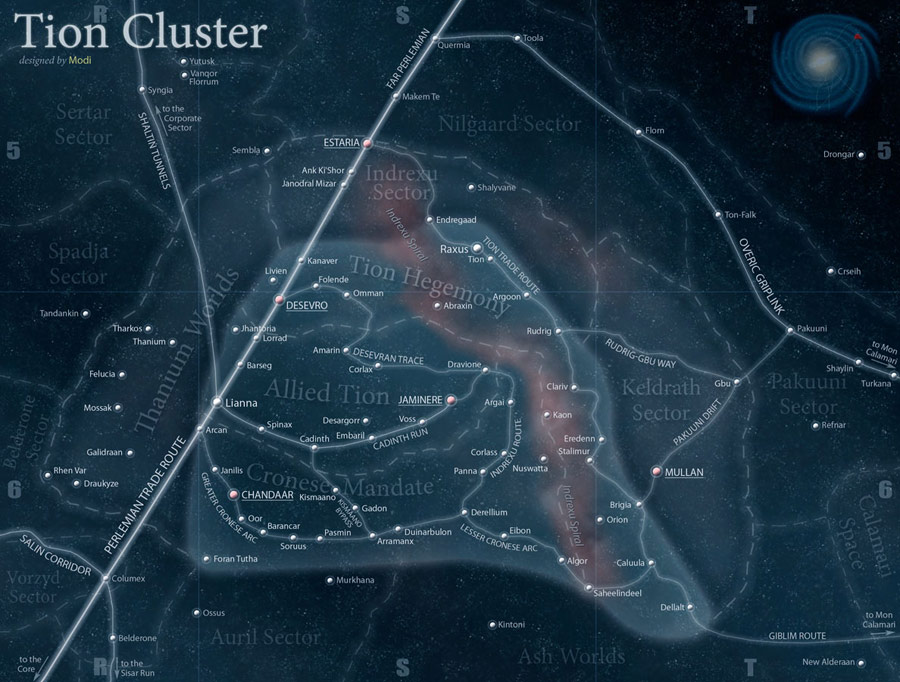 introduce the reader to the ancient era of Star Wars and blend real-world history with science fantasy. Of course, unlike the real Megas Alexandros, Xim loses his version of the Battle of Issus. It would be an examination of the line between grand vision and megalomania- or if there is such a line. And it could be used to address canon issues such as the Darth title, though the very nature of the work would allow wiggle room for contradictions.
introduce the reader to the ancient era of Star Wars and blend real-world history with science fantasy. Of course, unlike the real Megas Alexandros, Xim loses his version of the Battle of Issus. It would be an examination of the line between grand vision and megalomania- or if there is such a line. And it could be used to address canon issues such as the Darth title, though the very nature of the work would allow wiggle room for contradictions.
Ab Re Publica Condita: An Epic of the Unification Wars, the Downfall of the Infinite Empire, and the Dawn of the Republic
So this one would be The Aeneid meets Livy’s History of Rome meets 70s Sci-Fi pulp. It stars Faunus Valorum, an Axumite noble fleeing the sack of the Azure Imperium by the Rakata; Antigonus Praji, oligarch of Kaikelius; Sar Agorn, a monk from the mysterious “Je’daii” Order who resembles a glowing green blob; Ohwuun Stazi, a Duros hyperspace scout and long-distance trader who utilizes a reverse-engineered Rakatan hyperdrive; Valeria Organa, head of the Royal House of Organa on Alderaan; and assorted secondary characters. Their common enemy is the Rakata; their common destiny, to found the Republic. Like Anabasis of Xim, this one would be written as an in-universe work. While the early Republic was a bit human-heavy, that shouldn’t prevent the aliens that did take part in its founding from playing a prominent role.
Lucas: I have a billion different ideas I could pitch, but with the central idea being a single experimental novel: a Separatist Crisis political thriller. Each prequel film featured a lead-in novel; Cloak of Deception and Labyrinth of Evil were excellent, but Attack of the Clones was left with the lackluster The Approaching Storm to set it up. The book didn’t do its job. And with the Clone Wars finally opening up to storytelling, everyone wanted to play in that sandbox, and the fruitful pre-AOTC era was left almost entirely untended. The result is that the build-up to the Clone Wars has been ignored and the potentially fascinating Separatist Crisis has gone unexploited.
I propose a novel set in that period, focusing on the political upheaval of the time (written, of course, by James Luceno, the master of prequel political thrillers). The focus would naturally fall on the Sith: Dooku manipulating the Separatists; Palpatine manipulating everyone. The Separatist Crisis, with its waves of seceding planets, lends itself nicely to all kinds of action — diplomatic and political negotiations, espionage, investigation, small-scale fighting. An embassy of Jedi and Republic diplomats sent to negotiate with a major sector considering secession, facing off against Separatist agents, would be a natural plotline. Unlike The Approaching Storm, this book could do the situation justice by taking a look at the bigger picture. Dooku should be involved in the situation directly, rather than acting by proxy. Making Dooku a major character gives us the chance to flesh out the character, put him to use in his milieu, and get flashbacks detailing his defection to the Sith. It would also afford a real look at the actual formation of the Confederation of Independent Systems and its leadership. On the other side, we could see the Republic’s higher echelons at actual work as they scramble to avert the crisis and Palpatine manipulates to have his power extended. Seeing into the actual workings of Palpatine’s administration, as his aides and ministers engage in backroom dealings and finesse senators (such as Padmé and Bail) would likewise be great material for a political thriller. Throw in skullduggery around the actual negotiations and you’ve got the physical action to liven up the political crisis. It would be a bit daring to tell a political story, but it’s been done before to great success, and there’s no reason Star Wars isn’t capable of melding space adventure and conference-room tension (that’s the subject of an upcoming Star Wars and Genre). In this formulation, we could get a great novel that hits several neglected elements of the franchise — it could be the long-sought (in certain quarters of fandom) Dooku novel, Palpatine novel/Darth Plagueis sequel, AOTC lead-in, and even Padmé novel all rolled into one. Your move, Del Rey.
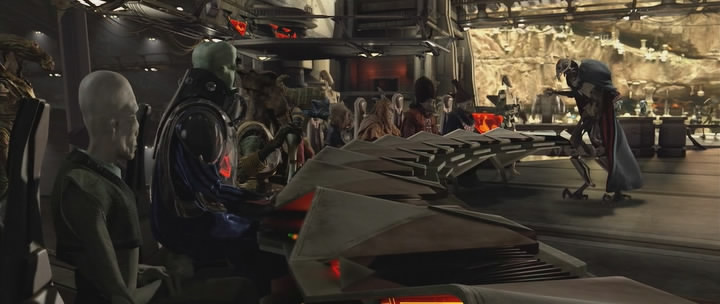
Mike: Well we’ve certainly got a range of ideas here…all good stuff, but I think a couple of you lost track of the “pitch” part (also Jay seems to be describing a TV series—an awesome one, admittedly—not a novel), so pretend I’m Jen Heddle and convince me, damn it! Ben, there are already enough New Republic war stories out there to fill a space cruiser; why are those stories so important? Tyler, after Dawn of the Jedi I can see the draw for a “founding of the Republic” story, but what’s the hook going to be to get the average reader to pick up a book about Xim? He’s cool to us Essential Guide acolytes, but why should John Q. Warsie give a shit? And Jay, be honest—could that idea work as a novel, as opposed to 44 minutes a week on NBC?
Ben: Why does the war aspect matter? Because, unless you’re going with the films notion of a near-instant, galactic collapse – there needs to be a depiction of the final defeat of the Empire as a military power. Despite much reference to World War 2, a mainstream SF has not really had the good side comprehensively defeat an adversary. If you look at the Hand of Thrawn books, there we have a defeated Empire, whose leader is ready to embrace the unthinkable and seek a negotiated peace. How did this happen? The Empire must have made one last, final great offensive and that great offensive must have been met by the Republic and been utterly defeated. People love the Battle of Endor, so a bigger, more intricate version of that should get their attention, but space battles are, in prose, a rare skill set so care needs to be taken on author selection. The evidence of series like Battlestar Galactica shows the audience can be as interested in what goes on on the bridge of a warship, as the battle outside it too. Plus, Ackbar was one of the most distinctive alien designs in the OT, he’s overdue for a starring role.
Tyler: Well, the way that I would sell the Anabasis of Xim is to pitch it to the crowd who bought the Atlas, Warfare, and The Jedi Path. It’s an in-universe exploration of the history of Star Wars. To the Diversity Crowd,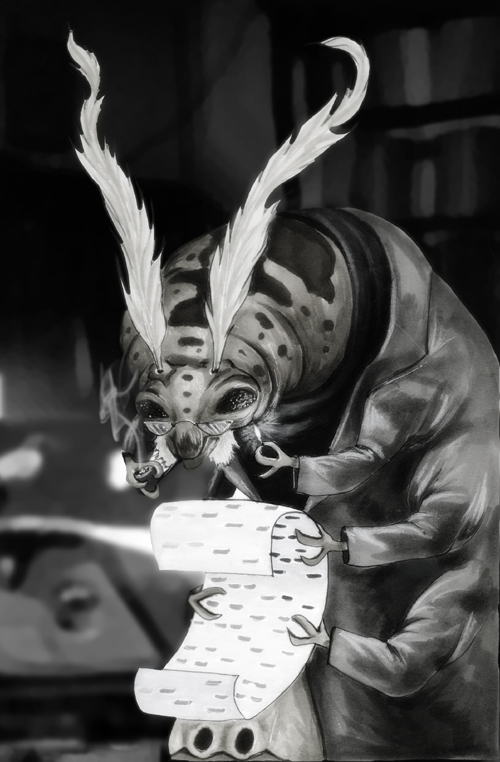 its a novel that paints the Hutts in a radically different light from the Jabba trope. For history buffs, it’s a fun sci-fi take on Alexander the Great. To the average reader, it’s a strange story set in the same era of Star Wars as that newfangled Dawn of the Jedi comic. It’s also a radical experiment to see how well a Star Wars novel can do without the Big Three or a video game to directly lean on, and if successful could further open up the Ancient Republic era as a viable period for storytelling. I’d even put annotations in the margins from Professor Skynx, of Han Solo and the Lost Legacy fame (Despite how big of a no-no actually marking up a primary source document would be in the real world). In conclusion, Jen Heddle, The Anabasis of Xim is a love letter to the historical influences of Star Wars, and a bold attempt to go where no Star Wars novel has gone before.
its a novel that paints the Hutts in a radically different light from the Jabba trope. For history buffs, it’s a fun sci-fi take on Alexander the Great. To the average reader, it’s a strange story set in the same era of Star Wars as that newfangled Dawn of the Jedi comic. It’s also a radical experiment to see how well a Star Wars novel can do without the Big Three or a video game to directly lean on, and if successful could further open up the Ancient Republic era as a viable period for storytelling. I’d even put annotations in the margins from Professor Skynx, of Han Solo and the Lost Legacy fame (Despite how big of a no-no actually marking up a primary source document would be in the real world). In conclusion, Jen Heddle, The Anabasis of Xim is a love letter to the historical influences of Star Wars, and a bold attempt to go where no Star Wars novel has gone before.
Jay: Though my idea is inspired by a television drama, I think it’d be particularly unsuited for a serial treatment. The reason is that its subject matter would presumably wear thin after a while. What made the show West Wing so successful was despite the political positions held by the protagonists, they were all very human characters with very human goals: they could be respected and related to regardless of a person’s politics. I cannot imagine the same would hold true of Imperial privy counselors and ministers. Moreover, the central conceit of the story is that we’re following interns who are just trying to do their jobs with impossible bosses: the serial treatment in that sense might work for a comedy, but for a drama, I feel like these interns would either quit or be liquidated. The Death Star novel comes to mind where WARNING SPOILERS WARNING SPOILERS WARNING SPOILERS the Imperial aligned characters end up leaving the service by the end. Though I’ve long decried the typical “defector” story arc as lazy and uninspired, I do think that for the characters to retain the audience’s sympathy, they would at the very least have to quit working for these evil individuals and try to find a more noble calling elsewhere in the Imperial civil service.
Thanks for reading! Next time on The Pitch: remember those Darth Vader TV specials everybody was talking about last month?

There are some great ideas in there, guys. Kudo to Ben for listing my beloved “Ackbar vs. Pellaeon” story, as well as his justification as to why it is important we see the final brutal battles that effectively forced Pellaeon to negotiation a peace.
I also loved the idea of “Ab Re Publica Condita: An Epic of the Unification Wars, the Downfall of the Infinite Empire, and the Dawn of the Republic” by Tyler. I have longed wanted a story about the founding of the Republic. Seeing the first steps towards galactic union would be awesome indeed!
You people and your democracy. :p
What makes it even better? No Sith to get in the way. The Sith Lords themselves won’t exist for another 18,000 years or so, and the First Schism with Xendor and his peeps (there’s another story I’d like to pitch to Del Rey, though they’d be more likely to take a Second Schism pitch) isn’t for another millennium or so.
I’d definitely read any of these suggestions, were Del Rey to publish them…
What can I say? Nicholas is Greek for “Victory of the People”, so maybe it was preordained. :-p